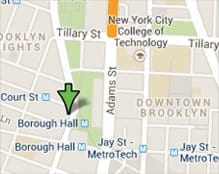Can you refuse to cooperate with a prosecutor?
Recently, a man named Sam Nunberg, involved with the F.B.I.’s the investigation into potential Russian meddling in the 2016 presidential election, made appearances on several news programs and other new outlets, making a variety of alarming claims. Among them, he claimed that he simply would not cooperate with the investigation and verbally dared the Robert Mueller, the lead prosecutor, to arrest him if and when he does not comply with a subpoena.
From a legal standpoint, this course of action is beyond inadvisable, but may serve as a useful demonstration of just about the worst way one could respond to potential criminal charges. If you or someone you know is involved in an investigation about a crime, it is important to understand how your behavior after the the fact may help or hurt your chances of beating the charges.
Protecting yourself with silence
An experienced attorney is never likely to recommend any suspect or person under investigation to take the actions of Mr. Nunberg, for a variety of reasons. First and foremost, all of the statements that you make in public, or to anyone who is not your legal representative, may count as evidence against you.
This, obviously, includes statements made in a public forum, such as a news broadcast, but goes much further. If you talk about the matter with colleagues or even friends and family, these individuals may receive subpoenas just like the one that Mr. Nunberg received potentially compelling them to testify under oath about the matter in court. The only individual who may legally refuse to testify against you is an attorney who represents you. This ability exists as part of attorney-client privilege.
It is not an indication of guilt to remain silent when involved in the investigation of a crime. Rather, it is a neutral position that allows you to minimize the evidence against you and protect your rights. To remain silent on the matter is, in fact, the opposite of admitting guilt.
By remaining silent and only discussing the issue with an attorney, you can more easily protect your rights as you build a legal defense and explore the potential outcomes of the matter.
Refusing to testify is illegal
If Mr. Nunberg chooses to double down on his bizarre choice to publicly refuse to cooperate with the investigation, then he will almost certainly receive punishment for doing so, which will probably take the form of jail time. It also places the prosecution in a difficult position, because not only must it deal with the complication of the refusal, it cannot appear weak to the public, especially in this instance.
If you or someone you know believes that the best course of action is to publicly (or privately) refuse to testify, please reconsider this position. It is much wiser to consult with an experienced attorney to understand your rights and determine strong legal means of protecting yourself by using the law rather than opposing it.
Office Location
Neil S. Ruskin
188 Montague Street Suite 900
Brooklyn, NY 11201
Local: (718) 237-1547
Fax: 718-875-4011












